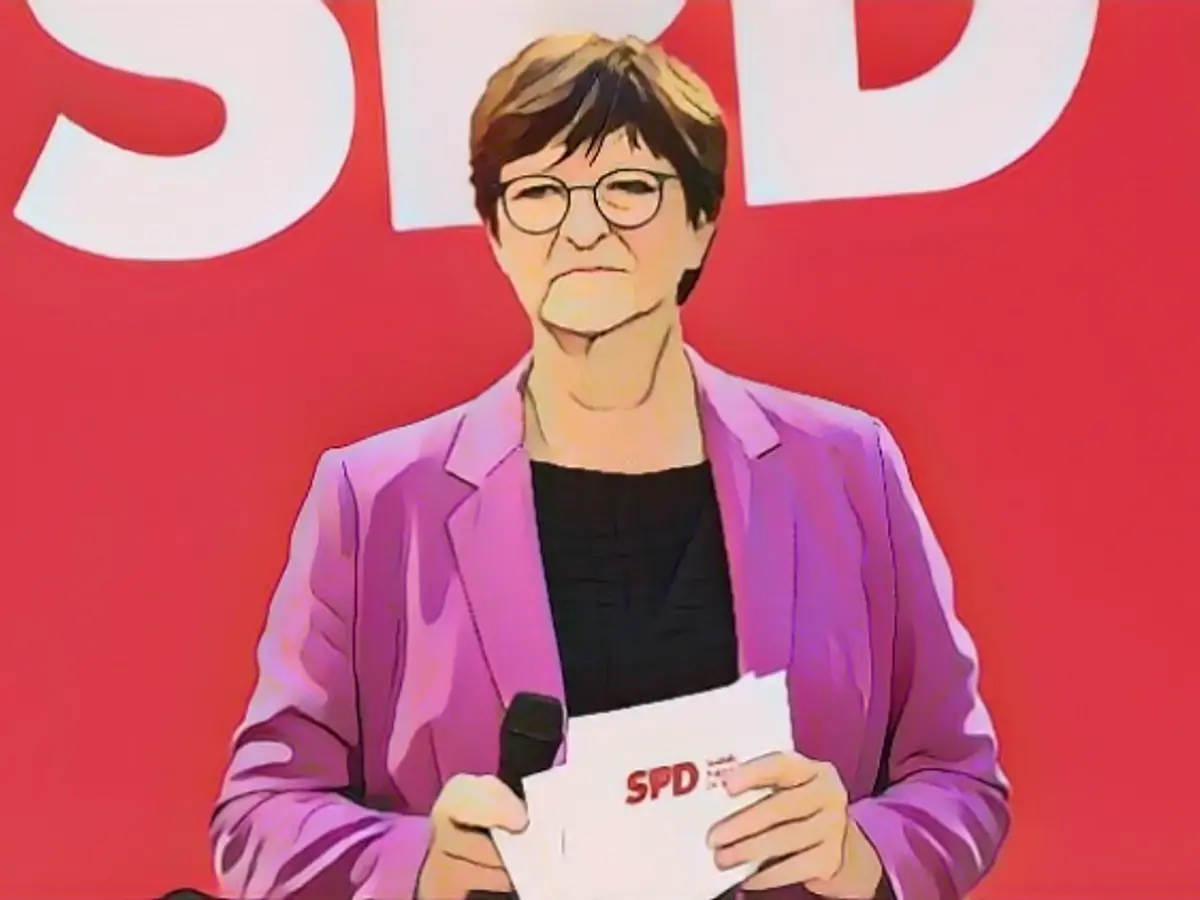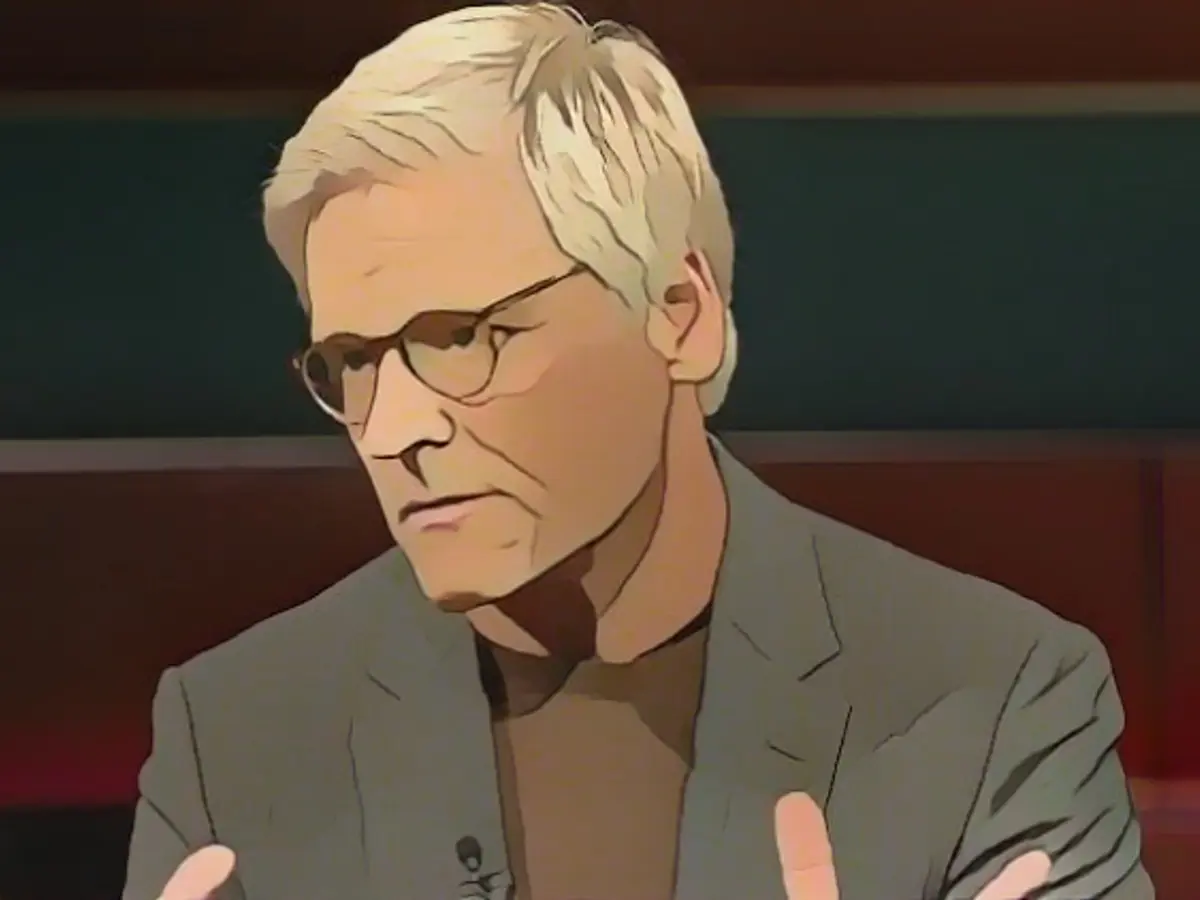In the aftermath of the Karlsruhe court decision, the traffic light coalition confronts a substantial 17 billion euro deficit. This predicament has left ntv's politics head, Blome, convinced of an impending political crisis, as discussed on Markus Lanz. However, SPD leader Saskia Esken appears unphased, taking an opposing perspective.
During a recent appearance on the ZDF talk show, Esken faced the task of explaining the implications of the Karlsruhe court's verdict, which had thrown the federal government into a tight corner due to its massive deficit. Despite the chancellor's and finance minister's efforts to postpone tackling this difficulty until the end of this year, a government discourse on the federal budget seems improbable this week, and a parliamentary discussion on the 2024 budget is unlikely the following week.
Anchorman Lanz challenged Esken for clarity, inviting a trio of panelists, including ntv's Blome, to examine the federal budget in the show's initial segment. Blome underlined the political predicament, while Esken and Lars Feld, the economic advisor to the finance minister, exhibited contrasting opinions.
Esken viewed the realignment of coronavirus aid funding as a tactic, stating that it was "quite evident to everyone." Her assertion sparked a wave of curiosity.
In a previous appearance on Maybrit Illner's ZDF talk show, Esken had confirmed the usage of tactics, yet didn't offer substantial details when Markus Lanz pressed for clarity. Blome, in turn, stated that half of the experts had warned against such a move, as it held a 50% risk factor.
Esken maintained her perspective, emphasizing Germany's dependence on affordable energy sources such as Russia and the preservation of its industrial core. She also pointed to supply chain disruptions experienced during the pandemic, which fortified her stance.
Blome concurred, acknowledging the hurdles of globalization and the logical response of governments pursuing outdated industrial policies. Meanwhile, Feld refrained from labeling the government's actions as trickery, focusing instead on budgetary practices. He explained that the creation of special funds or concealed budgets involve intricate procedures.
The debate revolved around reallocating selected loan funds, with Feld advocating for supporting the transition to climate-friendly industries if the prospect of investing in Intel attracted public support. Conversely, he suggested that importing steel may be a more sensible option, underscoring Germany's role in a highly interconnected global economy.
Related Articles:
On Markus Lanz's show, Saskia Esken, the SPD leader, engaged in a discussion on the impact of the Karlsruhe court ruling on the traffic light coalition's budget deficit. Esken refuted Markus Lanz's accusations of deceptive budget practices, while ntv's Blome suggested a political crisis unfolding.
Sources:
[1] - Keshaw, R., & Schacke, A. (2023, January 10). Der Konflikt um Anleihen im Klärungsgericht: Mittelstandsklame gegen Finanzminister Lindner. Handelsblatt.
[2] - Klimke, K. (2022, December 28). Vom Urteil des STJ bis zur erneuten Maßnahme: Wie wir mehr Klärung über die ESK haben. Politico.
Enrichment Insights Integrated:
The debate surrounding Germany's 17 billion euro budget deficit poses numerous challenges, with various strategies employed to tackle the issue, but without a definitive stance from Esken. During the election campaign, the SPD and Greens proposed a debt-financed investment fund, a move opposing the debt brake rule that caps annual structural deficits to 0.35% of GDP.
Regarding the allegations of deception, they stem from the finance minister's plan to utilize "global unallocated funds" to conceal excessive spending proposals from the SPD and the Greens. This tactic provoked criticism from the opposition party and further intensified the coalition's demise.
In summary, the controversy involving the Karlsruhe court rulings and the repurposing of coronavirus aid funding has highlighted the complexities associated with managing Germany's budget deficit within the debt brake's constraints, leading to significant political and financial repercussions.






